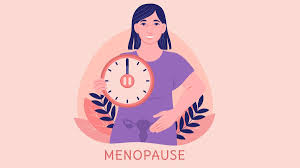
Breaking News
 Epstein Client List BOMBSHELL, Musk's 'America Party' & Tucker's Iran Interview | PB
Epstein Client List BOMBSHELL, Musk's 'America Party' & Tucker's Iran Interview | PB
 The Hidden Cost of Union Power: Rich Contracts and Layoffs Down the Road
The Hidden Cost of Union Power: Rich Contracts and Layoffs Down the Road
 Do They Deserve It? Mexico Is Collapsing As The US Deports Illegals Back Home
Do They Deserve It? Mexico Is Collapsing As The US Deports Illegals Back Home
 Copper Soars To Record High As Trump Unleashes 50% Tariff
Copper Soars To Record High As Trump Unleashes 50% Tariff
Top Tech News
 Insulator Becomes Conducting Semiconductor And Could Make Superelastic Silicone Solar Panels
Insulator Becomes Conducting Semiconductor And Could Make Superelastic Silicone Solar Panels
 Slate Truck's Under $20,000 Price Tag Just Became A Political Casualty
Slate Truck's Under $20,000 Price Tag Just Became A Political Casualty
 Wisdom Teeth Contain Unique Stem Cell That Can Form Cartilage, Neurons, and Heart Tissue
Wisdom Teeth Contain Unique Stem Cell That Can Form Cartilage, Neurons, and Heart Tissue
 Hay fever breakthrough: 'Molecular shield' blocks allergy trigger at the site
Hay fever breakthrough: 'Molecular shield' blocks allergy trigger at the site
 AI Getting Better at Medical Diagnosis
AI Getting Better at Medical Diagnosis
 Tesla Starting Integration of XAI Grok With Cars in Week or So
Tesla Starting Integration of XAI Grok With Cars in Week or So
 Bifacial Solar Panels: Everything You NEED to Know Before You Buy
Bifacial Solar Panels: Everything You NEED to Know Before You Buy
 INVASION of the TOXIC FOOD DYES:
INVASION of the TOXIC FOOD DYES:
 Let's Test a Mr Robot Attack on the New Thunderbird for Mobile
Let's Test a Mr Robot Attack on the New Thunderbird for Mobile
 Facial Recognition - Another Expanding Wolf in Sheep's Clothing Technology
Facial Recognition - Another Expanding Wolf in Sheep's Clothing Technology
Dr. Linda Ojeda's "Menopause Without Medicine" advocates for a positive, empowered app

Dr. Linda Ojeda's book, "Menopause Without Medicine," offers a refreshing perspective on a natural biological milestone that affects millions of women worldwide. As society's perception of aging evolves, Ojeda's work stands out by advocating for a positive, empowered approach to menopause. This book arrives at a crucial time when more women are seeking alternatives to traditional medical interventions, aiming to navigate this transition with grace and confidence.
Historically, menopause has been stigmatized, often portrayed as a disease or an unnatural process. Terms like "climacteric" and "involutionary years" have perpetuated a negative image, leading many women to dread this inevitable phase of life. However, Ojeda argues that menopause is not a disease but a biological milestone signaling a new chapter. This perspective aligns with a broader cultural shift where powerful women in politics, business and entertainment are redefining what it means to age gracefully.
Ojeda's book challenges the stereotypes surrounding menopause, encouraging women to be their own role models. She urges women to embrace this transition as a time of personal growth and empowerment. This message resonates with a generation of women who are increasingly rejecting the notion that aging is something to be feared or hidden.
The medical industry has traditionally approached menopause with a focus on symptom management, often promoting hormone replacement therapy (HRT) as the primary solution. However, Ojeda points out that this approach has its drawbacks. "The medical industry is now actively courting menopausal women because it's big business," she writes.
Ojeda criticizes the aggressive marketing of HRT, which often emphasizes benefits while downplaying potential risks and side effects. Her book encourages women to explore alternative approaches, advocating for a more holistic view of menopause that considers lifestyle, diet and psychological well-being.
She draws on research conducted by Fredi Kronenberg, director of menopause research at Columbia-Presbyterian Medical Center, to provide a nuanced understanding of the menopausal experience. According to a questionnaire cited in the book, 58 percent of respondents considered menopause more of an annoyance than a major life disruption. More than half agreed that the symptoms were, for the most part, mild.
The survey also revealed that certain factors influence the menopausal experience. Women who experience menopause at a younger age tend to have a more difficult time, while lifestyle choices play a significant role. Regular exercise and a healthy diet, particularly a low-fat, vegetarian diet, are associated with a more positive experience.
Ojeda delves into the psychological aspects of menopause, highlighting how a woman's perception of her femininity can impact her experience.



